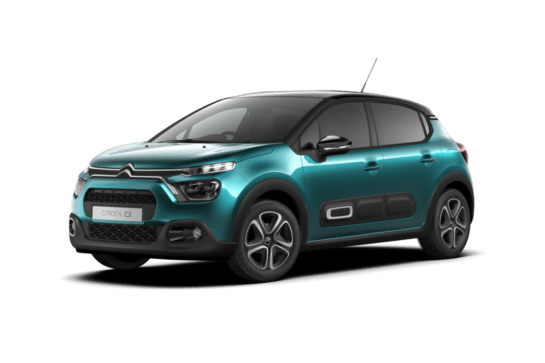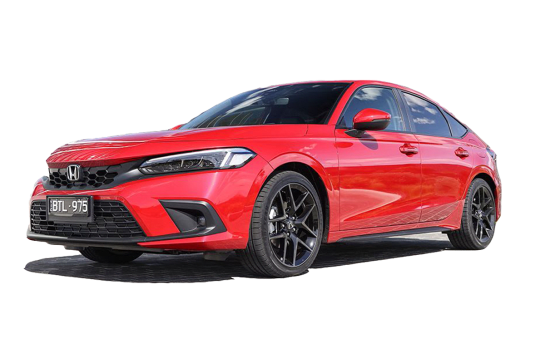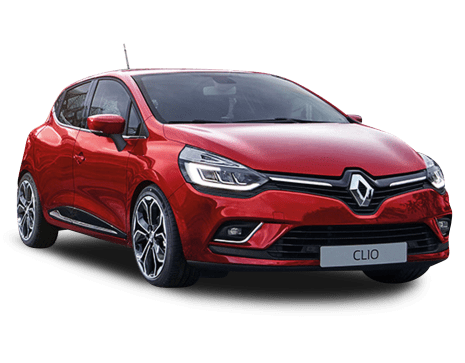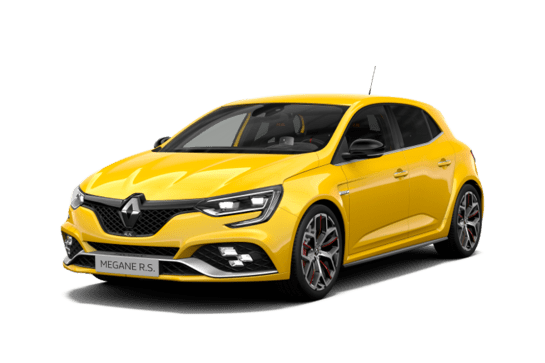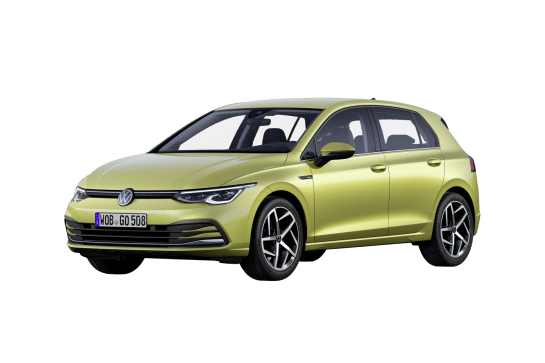
Fiat 500 VS Honda Jazz
Fiat 500
Likes
- Looks great
- Nippy performance
- Quick charge times
Dislikes
- Modest rear room
- Sub-par safety rating
- Sub-par warranty
Honda Jazz
Likes
- Capped-price servicing
- Build quality
- Huge interior space for its size
Dislikes
- No Apple CarPlay/Android Auto
- VTi-S very pricey
- Lack of advanced safety features
Summary
Fiat 500
If ever there was a car that looked ready for electrification from the moment it took shape in the design studio, it was the ‘new’ Fiat 500.
Arriving in 2007, it was up there with the best retro-inspired automotive designs in capturing the spirit of the original it’s based on, and EV power feels instinctively right for its next evolution.
On sale in Europe since 2020, this all-new 500e is the Italian maker’s first ever EV coming to Australia, and it will arrive in July this year.
We grabbed the opportunity of a brief pre-release drive in Fiat’s home of Turin, Italy.
Read more about
- Fiat 500e EV is finally here! But can it compete with BYD Atto 3, MG ZS EV and Nissan Leaf electric cars?
- Fiat CEO wants to dominate small electric car segment, starting with Fiat and Abarth 500e - report
- Can an affordable electric car save Fiat? Why the 2023 500e is the final hope for the Italian brand in Australia | Opinion
| Safety rating | — |
|---|---|
| Engine Type | — |
| Fuel Type | Electric |
| Fuel Efficiency | —L/100km |
| Seating | 4 seats |
Honda Jazz
Honda's Jazz is like the little engine that could.
It occupies a shrinking part of the market but has seen off a bevy of once-were competitors (most notably the Hyundai i20) and continues to battle gamely with the Mazda2.
Honda gave the range a little tweak in late 2017 to hand us the MY18 Honda Jazz. Some features were lost, and a few gained in an effort to keep up with Mazda's finest.
| Safety rating | |
|---|---|
| Engine Type | 1.5L |
| Fuel Type | Regular Unleaded Petrol |
| Fuel Efficiency | 5.8L/100km |
| Seating | 5 seats |
Verdict
Fiat 5007.4/10
It feels like the Fiat 500 is coming of age in this new-generation EV form. Electric power perfectly suits this compact hatch’s unique personality. It’s comparatively well priced and the design shouts Italian cool. It’s a niche model, but the 500e’s undoubted charisma could broaden its appeal as electric vehicle adoption begins to pick up pace.
Note: CarsGuide attended this event as a guest of the manufacturer, with travel, accommodation and meals provided.
Honda Jazz7.1/10
The Honda Jazz is an extremely capable small car, with an ace card of virtually unbeatable interior space. While it's hardly an excitement machine, or the best looking or equipped in its class (it is missing out on some useful safety gear), the Jazz deserves its status as a well-loved hatchback.
The best in the range is probably the VTi. There isn't anything compelling further up the variants unless you're keen on bigger wheels or leather trim. Its entry-level offering is a good-value, sturdy car that is packed with its best qualities, no matter which one you buy.
Does the Honda Jazz stack up for you? Or do offerings from Hyundai, Mazda and Kia get your bargain-hunting senses tingling?
Design
Fiat 500
In its latest electronic guise, the 500e stays loyal to its 1950s cinquecento roots, with the addition of contemporary touches like this distinctive split headlight and DRL design, beautiful 17-inch alloys that look like they’ve come out of a jewellery box, and a simple, curved rear end treatment with classic 500-style LED tail-lights.
There are six colours to choose from, with ‘Ice White’ being the only no-cost option. Premium shades - ‘Onyx Black’, ‘Ocean Green’, ‘Mineral Grey’ and ‘Rose Gold’ cost $700 extra, while the ‘Tri-coat’ ‘Celestial Blue’ adds $1600 to the price.
The interior also evokes 500s of old with a familiar elongated central panel across the dash, a two-spoke steering wheel and a circular instrument binnacle.
Woven material across the dash (made from recycled plastic) is a nice touch, and there are fun Easter eggs around the car like Turin’s skyline embossed in the wireless charging pad and an outline of the original 500 in the armrest recesses.
The single trim option is ‘Ice Beige’ synthetic leather on the seats and door panel, with a super-cool ‘FIAT’ monogram pattern, throwing back to the brand’s typography from the 1960s and ‘70s.
Overall, the cabin design is neat and ultra-clean with a high-quality attention to detail.
Honda Jazz6/10
The Jazz's exterior design is instantly recognisable. The shape has been roughly the same since the car's 2002 debut, with the mildest evolution over the years. The 2018 Jazz leads with the chin a bit, with a pronounced underbite and when fitted with a chrome grille, it looks a bit like the giant Jaws from James Bond after whacking his head.
Apart from that, the slimmed headlights and one-box body shape are almost entirely inoffensive, save for the chunky, stacked rear lights.
When you head inside it's a simple, basic interior. Well put together, it's easy to find your way around and, because there isn't much happening in here, it's unlikely you'll need the owner's manual, unless you want to identify and use every single deployment of the excellent Magic Seats in the back.
As you climb the range, you'll start to see body-kit additions like a rear spoiler and side skirts, but nothing particularly racy.
Practicality
Fiat 500
It might be 61mm longer than the combustion 500, but at just over 3.6m long, a little under 1.7m wide and a bit more than 1.5m tall, the 500e is still right-sized for the city.
A four-seater, it offers adequate space for the driver and front seat passenger, but with a wheelbase of just over 2.3 metres, something’s got to give, and that turns out to be room in the rear.
Realistically, it’s a kids-only zone, and even then, those in front will need to give ground to free up some legroom.
Storage runs to a tray between the front seats complete with roll-top lid, another storage box/armrest above that, a small glove box and bins in the doors with just enough room for a decent-size bottle.
For connectivity, there are USB-A and USB-C ports for power and media, plus a 12V socket in the centre storage tray and another in the boot. No charging options in the back.
Speaking of the boot, it's only 185 litres (VDA) with four seats up. Enough room for a limited number of (preferably) soft bags, although the rear seat split-folds 50/50 to open up 550L.
Given the front engine, FWD configuration, it’s no surprise there’s no ‘frunk’, the 500e is a no-tow zone, and don’t bother looking for a spare of any description your only option is a repair/inflator kit.
Honda Jazz9/10
The interior is full of cleverness packed into a small space. The centre console has two cup holders, a space for your phone and a compartmentalised open tray reachable by both front and rear-seat passengers. A third cupholder folds out of the dash on the driver's side. The back seat doesn't have any cupholders, unfortunately, and nor is there a centre armrest.
Rear legroom is impressive for such a small car - it's no wonder the HR-V compact SUV was spun off the Jazz platform. Added to that are the excellent 'Magic Seats', which fold in a variety of ways to increase the boot space dimensions from 354 litres to 1314 litres.
Luggage capacity is not bad for such a small car and with the flexible interior, the boot size goes up by four times in volume. This is one area in which it really does outdo the Mazda2. The removable cargo cover means you can get a decent chest of drawers in, however there's a bit of a drop once you get things over the loading lip.
You can also fold the seat bases up and out of the way to provide space for shrubbery, or a dog, or an awkward flat pack.
The basic VTi misses out on a bit of storage, namely the centre console storage box and driver's side seatback pocket, but the rest of the range has them both.
Price and features
Fiat 500
Offered locally in a single ‘La Prima’ coupe spec the 500e is priced at $52,500, before on-road costs. Although it's available in other markets, there’s no cabriolet-style convertible for Australia this time around.
At that price point EV rivals include the entry-level ‘Classic’ version of the Mini Cooper Electric and just-released five-door Cupra Born.
And the standard features list includes a 10.25-inch multimedia display (running the latest ‘UConnect 5’ software with ‘Hey Fiat’ voice recognition), built-in navigation, a 7.0-inch digital instrument cluster, climate control air, wireless Android Auto and Apple CarPlay, a panoramic fixed glass sunroof, synthetic leather seat trim, a wireless charging pad, heated front seats and six-speaker audio with digital radio.
There’s also 17-inch alloy wheels, LED headlights, tail-lights and daytime running lights, plus keyless entry and start.
Bear in mind you’ll be adjusting the front seats manually, and the climate control is single zone, the latter not such a big deal in a small car. And the only options relate to the paint, which is detailed in the Design section.
Honda Jazz7/10
The Jazz range is made up of three models. As with any car, how much you get is dependent on how far up the price list you go. Honda occasionaly offers drive-away deals, but we're using RRP as a guide. We've done an exhaustive model comparison as well as snapshots to help you decide between the three trim levels - VTi, VTi-S and VTi-L.
Our American cousins score a Sport edition, but sadly we miss out on that one.
The VTi opens the price range at $14,990 for the five-speed manual, rising to $16,990 for the CVT auto. Standard features include a four-speaker stereo, air-conditioning, reverse camera, remote central locking, projector style halogen headlights, 15-inch steel wheels, cruise control power windows and mirrors, black cloth trim, trip computer and hill-start assist.
The inclusion of the reversing camera is good but the lack of rear parking sensors is mystifying, a problem shared with the VTi-S, although they are optional on both specifications.
While the spare tyre is a space-saver, it's better than a tyre-repair kit, should trouble strike. A small tool kit is also supplied for just such an occasion.
Even with the 2018 update, there is no Apple CarPlay or Android Auto, although you can plug in your iPhone or Android device via the USB port. Irritatingly, the USB port is under a cover next to the 7.0-inch touchscreen itself, so you have a cable poking out of the dashboard. You might prefer Bluetooth in that case.
Step up to the CVT-only VTi-S ($19,990) and you pick up foglights, 16-inch alloy wheels, LED headlights, 'premium' cloth trim, leather-wrapped steering wheel, a centre console with storage box and GPS sat nav.
There is no improvement to the multimedia system.
The VTi-L ($22,990) adds LED daytime running lights, climate control, navigation system (hooray!), smart key keyless entry, push-button start, leather seats, paddle shift for the CVT gearbox, an alarm, bi-LED headlights, LED daytime running lights, heated front seats and two extra speakers,
Missing from the accessories list are a CD changer, DVD player, DAB or MP3, panoramic sunroof, sport pack, black pack, city pack, subwoofer, improved sound system, HID headlights, tonneau cover, roof rack, different rims and even floor mats.
You're stuck with the same infotainment head unit right across the range - its not even a radio/CD player arrangement, just radio and your phone. At least the VTi-L has more speakers for its sound system.
Dealers will no doubt sell you darker tinted windows and an extended warranty.
The Jazz is available in seven colours, with Rally Red the only freebie. For $495 you can have one of six shades of mettallic paint - Crystal Black, Brilliant Sporty Blue, Modern steel (gunmetal grey), Phoenix Orange, Lunar Silver and White Orchid. If you're after pink or yellow, you're out of luck. Not very Jazzy.
Under the bonnet
Fiat 500
Power is provided by a traction electric motor sending 87kW/220Nm to the front wheels via a single-speed reduction gear automatic transmission.
It’s fed by a 42kWh lithium-ion battery, the set-up running on a 400-volt electric architecture.
Honda Jazz7/10
All Jazzes are powered by Honda's 1.5-litre single-cam four-cylinder. The engine specs don't make for inspiring reading, with just 88kW and 145Nm. That's not a lot of horsepower, but when you consider the weight of the car, the figures don't look so weedy.
Power goes to the front wheels, so the Jazz is definitely not an off-road proposition.
Only the base model VTi has a choice of manual vs automatic, with a five-speed manual transmission and a CVT auto to choose from.
As to the question of timing belt or chain, the Jazz has the latter, so you don't have to worry about a belt change. The oil type is 5W-30
There is no diesel option, so there'll be no diesel vs petrol argument. Nor is there an EV or plug-in hybrid - with a battery, it's unlikely you'd have much boot space left. There isn't an LPG, 4x4, or AWD version either.
If you can be bothered fitting a towbar, the manual's towing capacity is 1000kg braked while the CVT's load capacity drops to 850kg. Both transmissions will haul 450kg unbraked.
Efficiency
Fiat 500
That 42kWh battery is connected to an 85kW DC charging system, with Fiat claiming it makes 50km of range available after five minutes, and 80 per cent of range in 35 minutes.
The charging port is a CCS Type 2 combo, and the AC maximum is 11kW, taking four hours for a full charge. An 11kW Mode 3 charging cable is included as standard.
Maximum range is 311km which is pretty handy, with the benefit that the relatively small battery delivers those quick recharge times.
Energy consumption on the WLTP cycle is 14.3kWh/100km, however our relatively brief steer around Turin didn’t allow for a meaningful test figure. That will have to wait for evaluation on local soil.
Honda Jazz7/10
Fuel figures are slightly different, depending on the gearbox you've chosen. Honda claims you'll get 6.5L/100km on the combined cycle in a manual while the CVT uses a bit less, coming in at 5.9L/100km. So fuel consumption km/L works out at about 15km/L for the five speed and 17.km/L in the CVT.
Real-world consumption is a little different, however. Our most recent test with the manual yielded 8.0L/100km while the CVT chugged down 8.2L/100km. Having said that, you'll see better fuel economy figures in the manual if, as I admitted in my VTi review, you don't drive it enthusiastically. The CVT was a bit disappointing because I was a lot more sedate in that one and it didn't deliver better mileage than the manual.
Fuel-tank capacity is 40 litres.
Driving
Fiat 500
Fiat claims the 500e will dash from 0-100km/h is 9.0sec which is pretty handy, and in typical EV fashion it’s cheekily rapid around town.
Given the transmission is a single-ratio auto, the placement of buttons in the centre of the dash to control its operation makes a lot of sense.
Acceleration is impossibly smooth, whether that’s from rest or in the cut-and-thrust of city traffic.
There are three available drive modes. As the name implies, ‘Normal’ doesn’t place any performance limitations on the motor, while ‘Range’ shifts to more aggressive single-pedal regenerative braking and even slicker accelerator response.
Then, if you’re low on charge, ‘Sherpa’ limits maximum speed to 80 km/h and softens accelerator response while cutting the climate control and seat heaters to ensure you get to your destination in best Nepalese mountaineering fashion.
We tried a stint in all three, and Range proved the most effective around town, the regen braking being strong but never abrupt (and able to bring you to a complete stop).
The disc front/drum rear mechanical brakes are a bit sharp on initial bite but nice and progressive from there.
A note for left-foot brakers, though. Apply pressure to the accelerator and brake pedals at the same time and the car bogs down in a case of minor paralysis. A quick dab on the brake is required to get things going again.
Of course, noise levels are low, with the motor just a background hum. But Fiat has installed an unusual (mandatory) ‘Acoustic Vehicle Alert System’ warning for pedestrians at speeds up to 20 km/h.
Rather than the generic space-age tone favoured by many brands, the 500e plays the music of Amarcord by Italian composer Nino Rota. Wow. Turning the car on or off can also be set to produce a guitar sequence inside the cabin.
Suspension is strut front/torsion beam rear and over decidedly ordinary surfaces through inner Turin the 500e was impressively refined, retaining its composure over some nasty ruts and bumps.
A roughly 300kg battery under the floor makes for a low centre of gravity, and thanks to wide tracks for its size, the 500e feels well planted and stable even in sharp cornering manoeuvres.
Steering feel is good, the 205/40 Continental EcoContact 6 rubber is agreeably quiet and grippy and a 9.7m turning circle makes reverse parking or a 180-degree change of course pretty straight forward.
In terms of ergonomics, operating the car is stress-free with a sensible mix of on-screen and physical controls, although a minor black mark goes against small opening levers located low down in the door panels. Not exactly easy to get to.
Honda Jazz7/10
The Jazz has always been a comfortable, easygoing car with performance figures to match. Its 0-100km/h acceleration is best described as leisurely, so if it's speed your after, this car isn't for you.
That said, the manual VTi is terrific fun to drive. Switch to the CVT, however, and the Jazz's reputation is restored. A good ride for front-seat passengers comes from McPherson struts up front while the rear suspension is by torsion beams, meaning rear-seat occupants can get a few shocks over bumps.
Road noise is a little higher than you might expect, but that's probably a combination of tyres and a commitment to lightness.
Obviously, being such a small car, manouverability is a key advantage. The turning radius is 5.2m, which is good but not super tight and the light, electric power steering makes dodging about easy. It certainly doesn't feel like it's on rails, but that's hardly what a car with a such a small engine size is about.
Ground clearance is 137mm, which is reasonable but jumping gutters is not advised.
In the base manual, you have a five-speed with a light clutch and an easy shift. For a motor missing out on a second cam, let alone a turbo, progress is swift rather than exciting, the engine droning away with a relaxed air. The CVT has an eco mode, which further blunts performance, but a ring of light around speedo glows green if you're behaving yourself.
Safety
Fiat 500
The Fiat 500e scored four from a maximum five stars when it was assessed by Euro NCAP in 2021, thanks in part to relatively low ratings in the ‘Vulnerable Road User’ and ‘Safety Assist’ categories.
That said, it performed well in adult and child occupant protection, and active crash-avoidance tech includes AEB (with pedestrian and cyclist detection), a reversing camera with 360-degree overhead view, ‘Intelligent Speed Assist’ (with traffic sign recognition), blind spot monitoring, lane-keeping assist, ‘Electronic Rollover Mitigation’ (manages the brakes and motor power during “extreme manoeuvres”), attention assist, tyre pressure monitoring and auto high/low beam LED headlights.
If a crash is unavoidable there are six airbags - dual front, front side, and curtains, although the increasingly prevalent front centre bag is missing in action.
There’s a back-to-base emergency call function triggered by airbag deployment, as well as top tethers and ISOFIX anchors in the two rear seat positions.
Honda Jazz7/10
The safety specifications include six airbags, ABS, stability and traction controls, brake assist and brake-force distribution. The Jazz was awarded a five-star ANCAP safety rating in January 2015.
Baby car seat security is offered with either three top-tether anchors but there are no ISOFIX points.
Missing is the more comprehensive safety equipment of its key rival, the Mazda2, which has forward AEB as standard, and its mid-range adds reverse AEB and at the top of the range scores reverse cross traffic alert and blind -spot monitoring. The airbag count is competitive, however.




